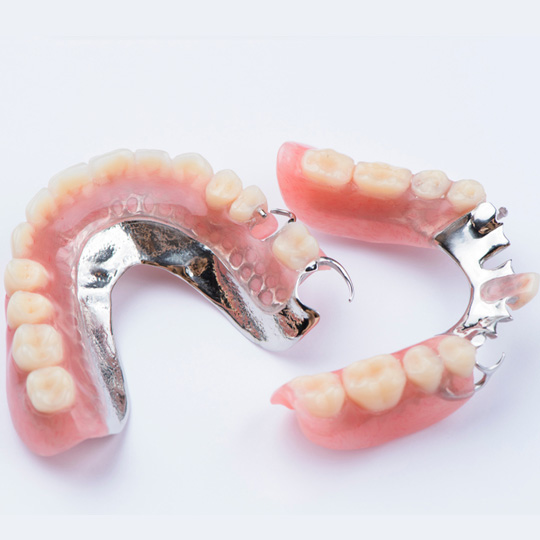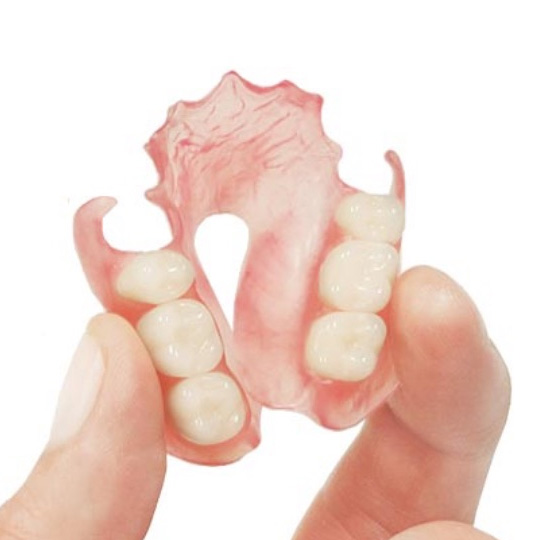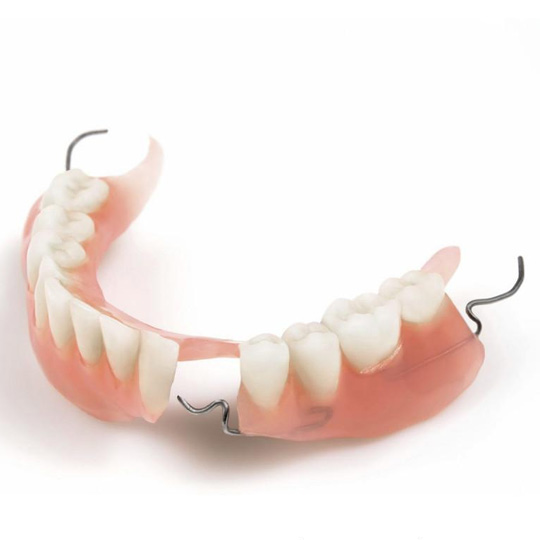


Complete dentures can be either "conventional" or "immediate". Made after the teeth have been removed and the gum tissue has begun to heal, a conventional denture is ready for placement in the mouth about eight to 12 weeks after the teeth have been removed.

Unlike conventional dentures, immediate dentures are made in advance and can be positioned as soon as the teeth are removed. As a result, the wearer does not have to be without teeth during the healing period. However, bones and gums shrink over time, especially during the healing period following tooth removal. Therefore a disadvantage of immediate dentures compared with conventional dentures is that they require more adjustments to fit properly during the healing process and generally should only be considered a temporary solution until conventional dentures can be made.


The 2-implant overdenture can be thought of as a two legged chair. You get good stability but still get some movement on the gums (not flopping around). This treatment in itself can change a person’s life, allowing them to be able to start chewing better, talking, and laughing without concern of a denture falling out, and they can get rid of those messy adhesives!


A cast metal partial denture involves a metal framework that attaches by way of clasps connected to crowns or natural teeth.
Full cast removable partial denture: also known as cast partial has a metal frame base with acrylic teeth. Metal clasps, that are hook-like structures, holds the removable partial denture onto teeth. The clasps are cast as part of the actual metal framework allowing stability and elasticity


Flexible dentures are a type of partial denture, which are typically constructed of nylon, or other thin thermoplastics, which differ significantly from the thicker, harder acrylic that is often used in normal dentures. This helps make these types of dentures a lot more bendable and flexible, giving rise to their popular name.
Unlike conventional dentures, immediate dentures are made in advance and can be positioned as soon as the teeth are removed. As a result, the wearer does not have to be without teeth during the healing period. However, bones and gums shrink over time, especially during the healing period following tooth removal. Therefore a disadvantage of immediate dentures compared with conventional dentures is that they require more adjustments to fit properly during the healing process and generally should only be considered a temporary solution until conventional dentures can be made.


Our economical all-acrylic partial denture, also known as a flipper, is custom made to fit your mouth comfortably and precisely. Made of an attractive and rigid medical-grade acrylic, this partial will fill in the spaces were your natural teeth once were. If necessary, it may have thin wire clasps that fit around a couple of your existing teeth to help hold it in place. Now you can quickly and affordably improve your appearance, as well as your ability to eat and chew food.
